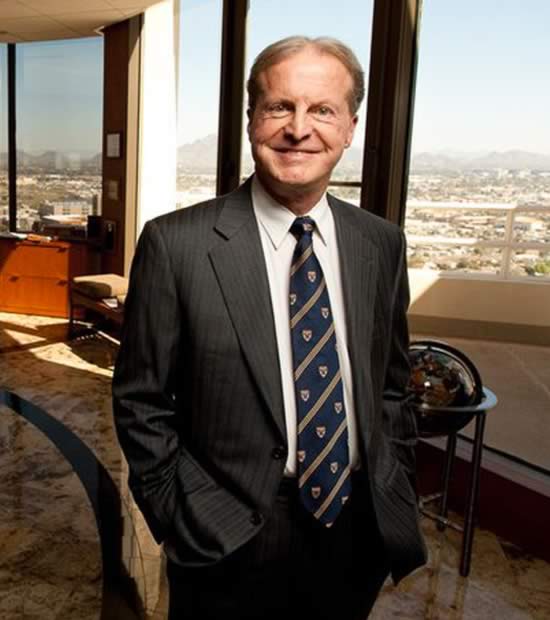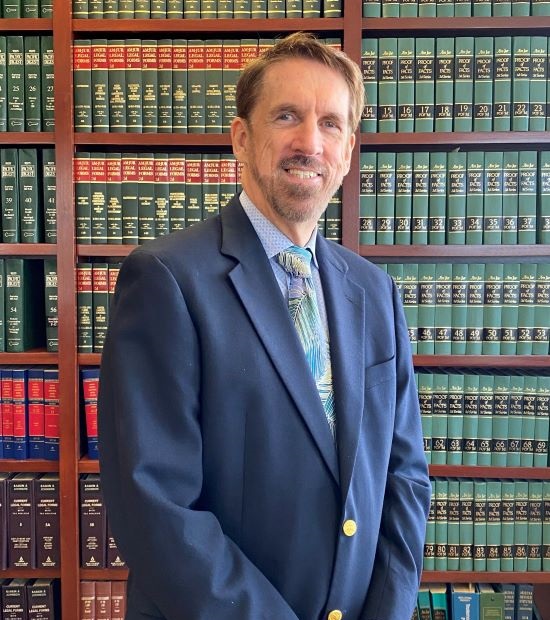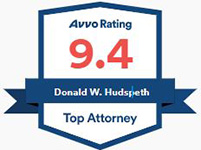- BUSINESS LAW
- Business Law
- Starting a Business in Arizona
- Reasons to Start Your Own Business
- Small Business
- Organizational Engineering
- Arizona C-Corporations & S-Corporations
- Form an LLC in Arizona
- Corporation Shareholder & LLC Operating Agreements
- Partnerships in Arizona
- Buying or Selling a Business in Arizona
- Arizona Representation for Out-of-State Businesses
- CONTRACTS & TRANSACTIONS
- Mergers & Acquisitions
- Commercial Leases
- Construction Law
- Construction Contract Issues
- Church Law
- Entertainment Law
- Health Care Law
- Internet Law
- International Business Law
- Medical Practice
- COMMERCIAL LITIGATION
- Commercial Litigation
- Alternative Dispute Resolution
- Aviation Contract & Lien Disputes
- Appellate Practice
- Breach of Fiduciary Duties
- Breach of Sales, Service & Supply Agreements
- Business Disparagement & Defamation
- Business Purchase Dispute Litigation
- Business Torts
- Federal Court Litigation
- Franchising Litigation
- Fraud & Misrepresentation
- Tortious Interference
- Construction Litigation
- BUSINESS SUCCESSION
- Business Divorce & Disputes
- Dissolutions & Partnership Disputes
- Shareholder Derivative Suits
- Division of Business Assets
- Buy-Sell Agreements
- Protection of Personal Assets
- Asset & Liability Protection
- Asset Protection Trusts
- Wills & Healthcare Directives
- WHITE COLLAR CRIME & REGULATORY
- White-Collar Criminal Defense
- Regulatory Compliance and Enforcement
- Internal Investigations
- INTELLECTUAL PROPERTY
- Intellectual Property
- Copyright Law
- Cybersecurity & Data Breach Laws
- Intellectual Property Infringement
- Trademark Law
- Trade Secrets and Proprietary Information
- EMPLOYMENT AGREEMENTS & ISSUES
- Employment Agreements & Issues
- Breach of Non-Compete Agreements
- Employment & Labor
- Restrictive Covenants
Search Site
Ask about offsite General Counsel services Appointments 365 – 7 days a week
866-696-2033
Working Beyond Your Means
1. Character as Destiny: Sometimes That’s Not Good.
Ralph Waldo Emerson — who wrote the essays Self Reliance and Compensation, among others — might have loved my law firm Clients, who tend to be hard-working, self-reliant, persevering and intelligent, just to name a few of their good personality traits. In short, they have “Character.” Too often, however, this Character causes them to fail. “How can this be?” you may ask. The purpose of this essay is to answer that question.
We’ll start with the general proposition that our assets can often be our liabilities as well. For example, single-minded focus can become tunnel vision. Consensus building can become pleasing. Strong values can become rigidity. Spontaneity can become lack of discipline.1
2. Skill Sets, Value Propositions and the Importance of Having Structure.
We’ll add a second basic observation, that none of us are good at everything. In business, this can work this way: Tony is a friendly, outgoing service station owner in his standard-issue grease stained blue coveralls with the red rag in his pocket. He fixes cars and pumps gas for the residents of his neighborhood. He does well because people like him and trust him and he is nice to talk to. So, Tony succeeds and prospers. He then decides to open a second service station in another neighborhood across town, and does so.
What just happened? A lot of things, including logistical challenges. But the result we address now is that of growing beyond one’s expertise. Tony built his business on his personality and good service, but Tony now has to work through others (as well as establish on-site management). This is a vastly different organization than the one Tony had. This may be an example of the so-called “Peter Principle” of growing beyond our skill set.
But, what happened is not just a matter of “skill set;” it is shift away from the business’ core strengths and value to the customer (the “value proposition”). Even if we assume that Tony has an MBA in management, and so could handle the management challenges, the fact would remain that Tony built his business on the value proposition of personality and personal service. Tony cannot offer that value set as well with multiple locations. From a marketing point of view –Unique Selling Proposition – he has “changed the deal.”
3. On Acting Your Size.
Another aspect of, or way of looking at, the consequences of growth is the structural change mandated by the change in size. As shown by Tony’s service station hypothetical, a change in size can cause a change in organizational structure.2 J.B.S. Haldane in his essay “On Being the Right Size” pointed out that, living things, whether elephants or insects, work at the size they are and would not function if shrunk or expanded. A fly, for example, would crush under its own weight if it were the size of an elephant. Haldane explained that, under the laws of physics, as we double the size of a square, its volume weight increases by the cube. This is one reason why business costs can so easily get out of hand: but that is the subject of another article. Here, the point is that as a business grows, like an organism and other living things, it not only grows quantitatively, but qualitatively as well; that is, as it grows, its structure must change. And, if the structure does not change, then the organization, like the organism, will fail. Witness what happened to Tony’s business in the example above. It might not do as well at twice the size.
4. Over-Reliance on Character as a Cause of Business Failure
All of which brings us back to some of the reasons why my business owner clients fail in spite of their Character:
- They over-rely on their Character strengths until they become liabilities.
- They expand beyond their skill set.
- They grow beyond their original value proposition to their customers (e.g. become too “corporate” e.g. chain stores).
- They don’t become “corporate” enough in dealing with the structural changes required as a result of company growth.
The business must add “Structure” to deal with growth. By “Structure” I mean adopted company objectives, job descriptions, policies and procedures – what I colloquially call “Roles, Goals and Controls.” Bottom line: The business must implement structure to replace Character.
In my experience many entrepreneurial companies, especially founder-created, owner-controlled organizations still operate as if they were sole proprietorships; that is the founder-owner calls the shots. A primary cause of this may be that the founder has, or had, Character. The companies may be “Character-based” companies. Depending on the owner’s skill set this will work for a while. But, eventually, like the “elephant-sized fly” the business may crush under its own weight due to the lack of structure. One example of this “crush” is internal dissension. For example, my firm handles many disputes between and among business owners. Whether the owners are members of a limited liability company or shareholders in a corporation these disagreements generally fall under the rubric of a “partnership dispute.”
One form of partnership dispute is where the company founder makes all significant decisions. For a sole owner, of course, this works. But often what happens is that as the company has, or adds, ‘partners,’ who expect to have some say along with their investment. And, as the business grows the breadth (i.e. across disciplines, e.g. accounting, marketing, management, engineering, etc.) and depth (money at stake and other consequences) of the decisions grows and can become vastly more important to the company’s viability and success. Yet, the company founder, say, our friend Tony, may still be making all the decisions. The company may still be “Character based.”
In addition to the ones discussed above, this causes some obvious problems, including (i) the role of the minority owner and (ii) corruption. Over and over again I see the founder treat other owners of the company, whose ownership percentages may be, say, 30% or more, as if they were just passengers along for the ride, but who in the founder’s mind are to have no real say in where the company is going and/or how to get there. But, except under the highly unusual legal circumstance of (what I call) “King Tut” authority under an LLC Operating Agreement it is legally wrong for the founder-majority owner to refuse or ignore the input of the company’s co-owners. In fact, among other things, the majority owner(s) owe a fiduciary duty to the minority owners; that is, the highest duty of loyalty, honesty, trust, integrity, etc. This is a “big f**king deal” as Vice President Biden would say.
Worse, the system, or lack thereof, may lead to corruption (defined here as “inappropriate decision making procedures”). For example, a star sales person, who may or may not be an owner, goes to the founder and asks for a car. The founder agrees. Whether or not the sales person deserved or needed the car is not the issue; the issue is how the matter was handled. Buying a car for the salesperson may be $20-$30,000.00 out of the pockets of the owners, who with an LLC would have been paid their share of this money as a part of their K-1 distribution. Now that money is gone and they had no input into the decision.
And this is but one example: In my practice, variations I have encountered include payments to other businesses owned by the founder, compensation for duplicate wives and families, mistresses, condos, faith healers, drugs – you name it. So, at its worst, Character-based decisions can become a function of “old friendships,” “ass kissing,” good mood, whim, etc., instead of what it should be a function of: standard operating procedures.3
On behalf on my clients, the forgotten owners, I attempt to present policies, procedures and job descriptions. If the company is an LLC I can do this in the Operating Agreement by specifying who has what authority and how decisions outside of the ordinary course of business (after defining that) will be made. This modest and reasonable, though usually resented and initially- rejected approach, is a set-up. The setup is that if the founding Character rejects the implementation of Structure then my letter, and the attached memo of proposed “Standard Operating Procedures” become “Exhibit A” in a lawsuit including possible claims of negligence (mismanagement), breach of fiduciary duty, perhaps misappropriation, etc. The founder, or dominant owner, is then forced to defend against our request to run the business as a normal business is run.
5. The Right Way to “Go Corporate.”
Some companies “rue the day” when they have to become corporate, e.g. Ben & Jerry’s Ice Cream who had to make dollar-decisions in favor of their hedge fund shareholders — which they would never have made before – and legally they had to. But, this is not really what we are talking about. Here, we are talking about having internal controls, including the hiring of persons whose job it is to do x and who is held accountable for that. There is a saying that: “If everyone is responsible, no one is responsible.” A corollary to this principle might be: “If the founder is responsible for everything, the organization can only grow so far as the founder can meet the organization’s geometrically increasing need for different – and increasingly specialized – skill sets (a good personality and personal service can only take the business so far. In fact, the old paradigm of a “shoe shine and a smile, i.e. building relationships over time, may be completely ineffective in the Internet world. (As much as I like ‘Julie’ at Neiman Marcus, it may be faster, much more convenient, and even cheaper just to buy online.)
When I was a young man there was a band called the Pott (short for Pottawatomie or something like that) County Pork & Bean band. They looked and sounded a lot like the Grateful Dead. They wore overalls and had hand-painted speakers of black and fire engine red. And they talked in a “down home” manner of speaking. But all of the guys were college grads and all of them bought and paid for farms or made other sizeable investments from their earnings. One day I was looking at their equipment and realized that behind the humble facade the band had the best and most sophisticated instruments and equipment available. The point I learned: Be as sophisticated and “uptown” as possible behind the scenes (i.e. internally) and as down home as possible (i.e. down to earth, easy to talk and relate to) externally. So, in a nutshell, going corporate inside does not mean you have to go corporate outside.
6. Conclusion.
But, going back to Character and the trouble it can cause you and your owner-operated business: If you, as a small business, don’t add the “Structure” of Goals, Roles and Controls internally to support the volume weight of growth, then the business will either be crushed by the weight of organizational problems and internal dissension or “max out’ at the level of skill and time contributable by the owner.
I see it all the time: The company may grow rapidly from nothing to $4-5,000,000.00 based on its owner’s Character, its skill set and value proposition, then will stop growing as the founder still tries to do and decide everything. Sometimes the founder acts or reacts “jealously” over power, or greedily over money (because the company is “my baby”); sometimes the founder or dominant owner acts “valiantly” (because nobody can do it as well or cares like I do, which may be true up to a point). But, even the valiant founder will stifle the organization’s growth and success if structure does not augment character.
Whatever the reason, the failure to add Structure to Character will stifle, if not destroy, the company.
At the Law Offices of Donald W. Hudspeth P.C. , we do more than connect the dots for businesses—we create the dots. Contact us at 602-265-7997 or toll free at 866-696-2033 or email us.
- For fun I gave my ASU students a five-question personality test to determine the characteristics. Whether or not you accept the results, i.e. your personality, the indisputable truth is that we process the “data of the world” differently. Same world, but different.
- In the above example we used a second service station to represent the increased size because it makes the point easily understandable. But the same issues of “skill set” and “value proposition” would hold true if Tony’s one service station became a mega-station with 14 pumps, supermarket and gift store. He would no longer be running the business (as much) based on his personality and personal service.
- A case I guess of absolute Character corrupting absolutely.
© 2010 – OBVIOUSLY THIS ARTICLE IS INTENDED TO PROVIDE ONLY GENERAL, EDUCATIONAL INFORMATION. IT IS NOT INTENDED TO GIVE YOU LEGAL ADVICE ABOUT YOUR SPECIFIC CASE WHEREIN ONE FACT CAN CHANGE THE ENTIRE OUTCOME. AND, UNDER THE ETHICAL RULES OF THIS STATE LAWYERS CAN AND WILL PROVIDE LEGAL SERVICES ONLY PURSUANT TO A SIGNED FEE AGREEMENT WITH DEFINED SCOPE AND TERMS OF PAYMENT.
Our firm now offers a scholarship program for ASU first and second year law students.
The scholarship is awarded to students for academic merit with an interest in business and business law. Candidates may have majored in fields other than business, have taken a break between college and law school, or have had exceptional life experiences.
Read MorePay your bills online
Use our easy-to-use and secure online payment feature to pay your bill. We accept all major credit cards.

Contact us




















